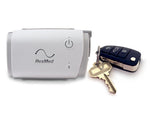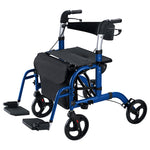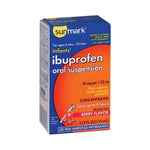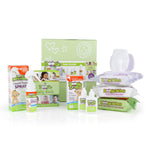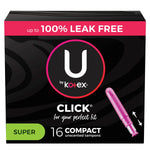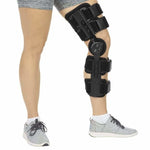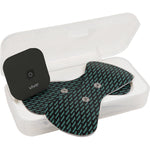Your cart is empty
Have No Fear, HSAs are Here!

Health Savings Accounts (HSAs) are an incredible way to save tons of money. But like any coin, it comes with two sides, and the benefits only encompass one. In order to be eligible for an HSA, you must first be enrolled in a high deductible health plan, or HDHP. For the year 2023, the IRS has determined an HDHP to have a minimum deductible of $1,500 for an individual and $3,000 for a family. Those numbers can look a little scary since that money will come out of your pocket before your insurance begins to cover the cost of medical expenses, thus the question arises; is having an HSA worth the risk of paying such a high deductible? The purpose of this post today is to explore that very question.
The most important thing to remember about having an HSA is that it comes with what has been termed “triple tax advantage.” In other words, this means that you save money on taxes in three distinct ways. First, all contributions to your HSA, whether made by you or your employer, are tax-free. Second, growth of your account also remains tax-free. And third, withdrawals made for qualified medical expenses are tax free as well. We discussed this briefly in my post “Why Should I Get an HSA?” but, we are going to go into more detail here in the context of how it helps balance out the HDHP.
CONTRIBUTIONS ARE TAX FREE
This is a very important advantage because it means that every dollar you contribute through payroll deductions is put directly into your account. Not a single penny is withheld. If you contribute $4,000 as a family that year, then that is what will be available to you (plus, of course, any interest or return on investment you acquire). The same goes for any contributions made by your employer. Nothing is lost to income taxes.
So how does that help with the high deductible? Well, consider this scenario:
Without an HSA:
Money set aside annually: $4000
Tax bracket of 32%: -$1,280
Money available for medical expenses: $2,720
With an HSA:
Money contributed annually: $4000
Tax bracket of 32%: - $0
Money available for medical expenses: $4000
The numbers are simplistic, but the savings are real. That is money available to you that you can use on doctor and dentist bills, prescriptions, eye exams, contacts and prescription lenses, even things your insurance may not cover such as laser eye surgery, fertility treatments, and even guide dogs. Not only will your HSA money help you pay the costs that count toward your deductible, it also will help you pay your other eligible medical expenses as well. With the tax-free contributions you are making, you’ll be able to have more of your money ready and available to help.
GROWTH IS TAX FREE
Did you know that you can invest a portion of your HSA? It may seem too good to be true, but you have the opportunity to make your money grow at an even faster rate than you contribute. That’s why this advantage is so great. Any returns you receive from your investments will remain tax free. In other words, if you do it right, you could add even more dollars that are ready to help you balance your budget with that high deductible.
And it’s not just returns on investments either. Even the interest that you earn on your account is exempt from taxes. Thus, this benefit is a key aspect of long-term financial plans, especially if you are someone who loves saving all they can.
TAX FREE WITHDRAWALS
When you contribute to other retirement plans such a 401(k) or an IRA, making withdrawals comes at a cost. The funds you take out are counted toward taxable income, and you must pay the appropriate percentage. HSAs are different. Any withdrawal for an eligible medical expense will not incur taxes, meaning you can spend it when you need it on what you need.
This advantage is vital for helping you with your high deductible because in essence you are converting what would have been tax money into funds for medical expenses, including meeting your deductible.
The caveat is you can only use your HSA funds on things that are eligible. Therefore, what qualifies and what does not? It is a very difficult question to answer when you are in the middle of the grocery store or browsing an online site that doesn’t specify. However, here at HSA Depot, we’ve got you covered. Our very purpose is to offer a place where you can spend your HSA money confidently and wisely. Every product we carry is HSA and FSA eligible and we love helping you find the healthCARE products you need to take care of your family!
BUT WHAT IF I STILL CAN’T MANAGE THE HIGH DEDUCTIBLE?
I can talk about HSAs all day and tell you the high deductible is worth it, but the truth is: sometimes an HDHP is not the right fit. You may have large medical expenses anticipated for the year, and perhaps favoring a more traditional plan might be the way to go for you. Maybe you have a condition you need to regularly see a specialist for, or you know you will be needing several expensive treatments or surgeries. Whatever the case, HSAs do well when they are used to invest for the long term as opposed to using them solely for current-year expenses. Be sure to reach out to your insurance provider if you need specific counsel for your personal situation. If HSAs aren’t a good fit for your current situation, be sure to ask about FSAs. We’ll cover this in other blog posts as well.
CONCLUSION
In the end, the takeaway is this: you may initially have to pay expensive upfront costs for your deductible, but you can use HSA funds to pay for this, offsetting the potential expenditure.
If you need a place where you can afford healthcare products or a place to use your HSA/FSA funds, stop by our store in Logan, Utah or take a browse through our website (www.hsa-depot.com)! Our mission is to help you take CARE of your family!
What do you use your HSA for? Let us know in the comments below!
Sincerely,
Hoolio
- Choosing a selection results in a full page refresh.


